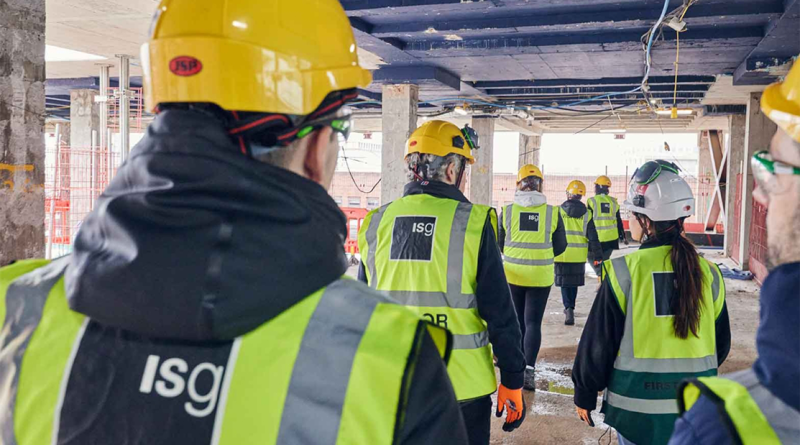ISG Struggles Amid Market Challenges
Founded in 1989, ISG quickly gained a reputation as a global leader in construction. Initially focusing on the UK market, the company soon expanded internationally, working on major projects across a range of industries. ISG’s adaptability allowed it to thrive in various sectors, including commercial, infrastructure, and biopharmaceuticals. Its involvement in the £200 million vaccine manufacturing plant on Teesside is one example of how the firm has capitalized on emerging markets.
The company’s success was also driven by its fit-out division, which consistently contributed to overall revenue. ISG’s ability to secure landmark projects, like the £600 million Sunset Waltham Cross Studios development, further solidified its standing as a key player in industries ranging from commercial construction to the booming film studio sector. These projects demonstrated ISG’s forward-thinking approach, cementing its global presence in the construction world.
The Turning Point
Despite its global success, ISG encountered serious financial difficulties in 2015. The firm faced substantial losses due to underperforming projects and cost overruns, which revealed weaknesses in its operational management. These failures resulted in significant financial strain and leadership changes as ISG sought to stabilize its finances and regain control of its operations.
The 2015 crisis was a pivotal moment in ISG’s history, marking the beginning of a more cautious approach to project management. Although the company was able to recover, this period highlighted vulnerabilities that would resurface in the years to come. These challenges impacted the company’s ability to maintain momentum in the competitive UK construction landscape.
Recovery Efforts and New Challenges
After the 2015 crisis, ISG worked hard to rebuild its reputation and market position. Under new leadership, the company diversified its portfolio, expanding into sectors like semiconductors, life sciences, and hyperscale data centres. One of its crowning achievements was securing the £600 million Sunset Waltham Cross Studios project, the largest in its history. ISG also made significant inroads into the biopharmaceutical space, positioning itself as a key player in future-focused industries.
By 2024, ISG encountered new obstacles that compounded existing financial issues. Despite maintaining a strong order book worth £1.9 billion, the company’s profit margins were squeezed, falling to 0.5%. Rising costs, project delays, and leadership turnover added to the pressure, leading to speculation about the company’s future. Matt Blowers, ISG’s new CEO, faced the daunting task of navigating these obstacles while managing a tightening UK construction market. The financial strain has led to discussions about a potential sale of the company to new investors, further adding to the uncertainty surrounding ISG’s future.
Uncertainty Surrounding ISG’s Future
As 2024 unfolds, ISG’s future remains uncertain. Talks of a potential sale to new investors have dominated the headlines, with reports indicating that an announcement could be imminent. This comes at a time when the UK construction market is facing a significant downturn, adding complexity to ISG’s situation. Analysts believe that under new ownership, ISG may undergo restructuring to regain profitability, but whether these changes will be enough to secure the company’s long-term future is unclear.
At the same time, ISG’s focus on high-growth sectors, such as life sciences and semiconductors, provides some optimism for its future. These industries are expected to see continued demand for specialized construction services, which could offer ISG new avenues for growth. ISG continues to contend with mounting pressures, including escalating costs and shrinking profit margins. Leadership instability remains a significant concern, with recent changes adding to the uncertainty. Whether ISG can navigate these obstacles and secure a stable future remains to be seen.
Sources:
